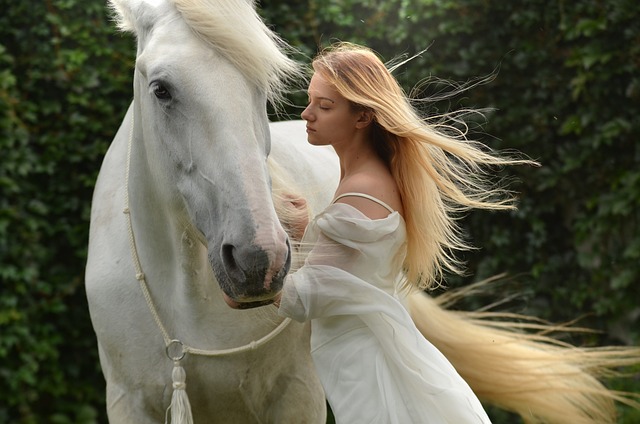Spis Treści
Can Horses Feel Your Heart Rate?
When it comes to understanding the intricate bond between humans and horses, there are numerous fascinating aspects to explore. One intriguing question that often arises is whether horses can feel your heart rate. In this article, we will delve into this topic and provide you with a comprehensive understanding of the relationship between horses and human heart rates.
Understanding the Equine Sensitivity
Horses are known for their remarkable sensitivity and ability to perceive subtle cues from their surroundings. As highly perceptive animals, they can pick up on various physical and emotional signals emitted by humans. This sensitivity is attributed to their acute senses and their ability to read body language.
When it comes to heart rate, horses have been observed to respond to changes in their human counterparts. While they may not have the ability to directly feel your heart rate, they can detect the physiological changes that occur when your heart rate increases or decreases.
Physical Cues and Heart Rate
Humans experience a range of physical cues when their heart rate changes. These cues can include changes in body temperature, perspiration, and even subtle shifts in body language. Horses, with their keen observation skills, can pick up on these cues and interpret them as indicators of your heart rate.
For example, when a person’s heart rate increases due to fear or excitement, their body temperature may rise, leading to increased perspiration. Horses can detect these changes through their sense of smell and may respond accordingly. Similarly, if a person’s heart rate decreases due to relaxation or calmness, their body language may become more relaxed, which horses can also perceive.
Emotional Connection and Heart Rate
Aside from physical cues, horses are also highly attuned to human emotions. They can sense changes in your emotional state, which can be closely linked to heart rate fluctuations. When you experience fear, anxiety, or stress, your heart rate tends to increase. Horses can pick up on these emotional cues through their acute observation skills and their ability to read your body language.
Research has shown that horses have a remarkable ability to mirror human emotions. They can sense when you are feeling anxious or stressed, and they may respond by becoming more alert or agitated themselves. Conversely, when you are calm and relaxed, horses are more likely to exhibit similar behaviors.
The Role of Trust and Bonding
The ability of horses to detect changes in your heart rate is also influenced by the level of trust and bonding between you and the horse. Horses are highly social animals and form strong bonds with their human counterparts. When a deep bond is established, horses become even more attuned to your emotional and physiological state.
When you have a strong bond with a horse, they can sense your heart rate changes more accurately. This is because they have learned to trust you and rely on your emotional cues as indicators of their own safety and well-being. The stronger the bond, the more finely tuned their perception becomes.
Practical Applications
The ability of horses to sense changes in your heart rate has practical applications in various fields, including therapy and horsemanship. Equine-assisted therapy, for example, utilizes the sensitivity of horses to help individuals with emotional or psychological challenges.
In therapy sessions, horses can pick up on the emotional state of the individual and provide valuable feedback. If a person’s heart rate increases due to anxiety or fear, the horse may respond by becoming more alert or moving away. This feedback can help the individual become more aware of their own emotional state and work towards managing it effectively.
In horsemanship, understanding the horse’s ability to perceive heart rate changes can enhance communication and training. By being aware of your own heart rate and its impact on the horse, you can better regulate your emotions and provide clearer cues to the horse. This can lead to improved trust, cooperation, and overall performance.
Conclusion
While horses may not have the ability to directly feel your heart rate, they possess an incredible sensitivity to physical and emotional cues. Through their acute observation skills and ability to read body language, horses can detect changes in your heart rate indirectly. This sensitivity is further enhanced by the level of trust and bonding between you and the horse.
Understanding the horse’s ability to perceive heart rate changes has practical applications in various fields, including therapy and horsemanship. By harnessing this knowledge, we can deepen our connection with horses and utilize their sensitivity to enhance our own well-being and performance.


















